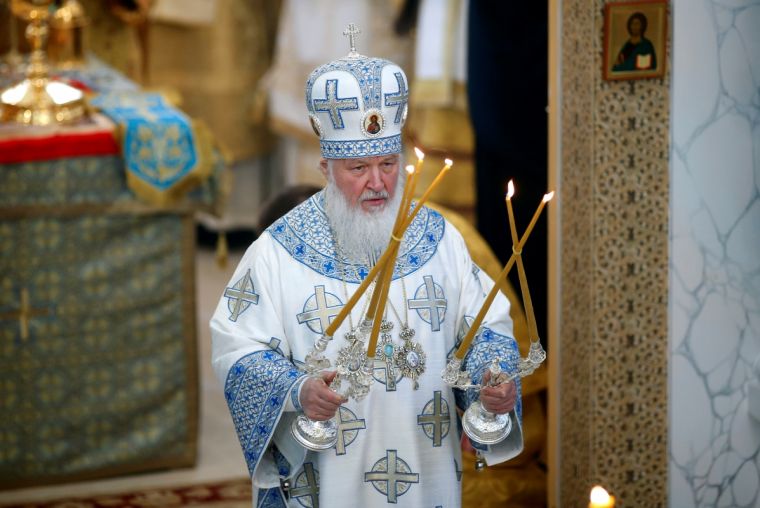Orthodox Patriarch: Russian Revolution was 'catastrophic' for Church
The October Revolution that heralded the triumph of communism in Russia had 'catastrophic consequences' for religious communities, according to the head of the Russian Orthodox Church.
Patriarch Kirill was addressing the country's Interreligious Council at the Jewish Museum and Tolerance Centre in Moscow, on the eve of the centenary of the foundational event in modern Russian history.

Patriarch Kirill, who is close to President Vladimir Putin, has seen his Church flourish under the Putin regime, with thousands of churches reopened and a new public role for the Church.
However, while the Church is frequently seen as embodying a resurgent Russian nationalism and rarely criticises any action taken by the Putin government, Kirill's statement demonstrates its determination not to allow the suffering of Christians under Russian communist rule to be airbrushed out of history. His close aide, Metropolitan Hilarion, has previously said of Stalin, regarded with nostalgia by many Russians: 'I think that Stalin was a monster, a spiritual freak, who created a horrendous, anti-human system for governing the country, based on lies, violence, and terror. He unleashed genocide against the people of his own country and bears personal responsibility for the deaths of millions of innocent people. In these terms, Stalin is completely comparable to Hitler.'
In his address, Kirill said: 'This event led to truly catastrophic consequences for religious communities, to persecution of believers, destruction of churches and total anti-religious propaganda.'
During purges under successive Russian communist leaders, notably Stalin, churches were closed, Church property expropriated and priests were imprisoned and executed.
Kiril referred to the 'terrible tragedies that led to millions of victims' and said: 'What is the cause of it? To a considerable extent, it is a demonstrative and aggressive rejection of religion and desire to build a life without God, which inevitably leads to burying moral values in oblivion.'
Kirill condemned the 'moral relativism' that he said had led to the 'authoritarian regimes of the past century', saying: 'The policy of world superpowers in many cases openly and cynically trampled upon the categories of good and evil.'
He also warned of the danger of unrestricted freedom, saying it 'cannot be confused with all-permissiveness and the concept of human rights and freedoms should be complemented with the ideas of moral responsibility'.
He added: 'From the point of view of the Russian Orthodox Church, it is unacceptable when the humanistic understanding of human rights and freedoms is used to assert in society the ideas of such social sinful things as abortion, homosexuality or euthanasia as admissible social norms.'
Kirill also stressed the contribution of Russia's 'traditional religions' to its society, saying the basis for 'a common perception by our religious traditions of moral values, absolute and universal'.
However, members of minority faiths including Protestants and Jehovah's Witnesses have been harassed as a result of the so-called 'Yarovaya Law', ostensibly passed to combat terrorist propaganda but often used against evangelical Christians.
Kirill is currently on an official visit to Romania.











